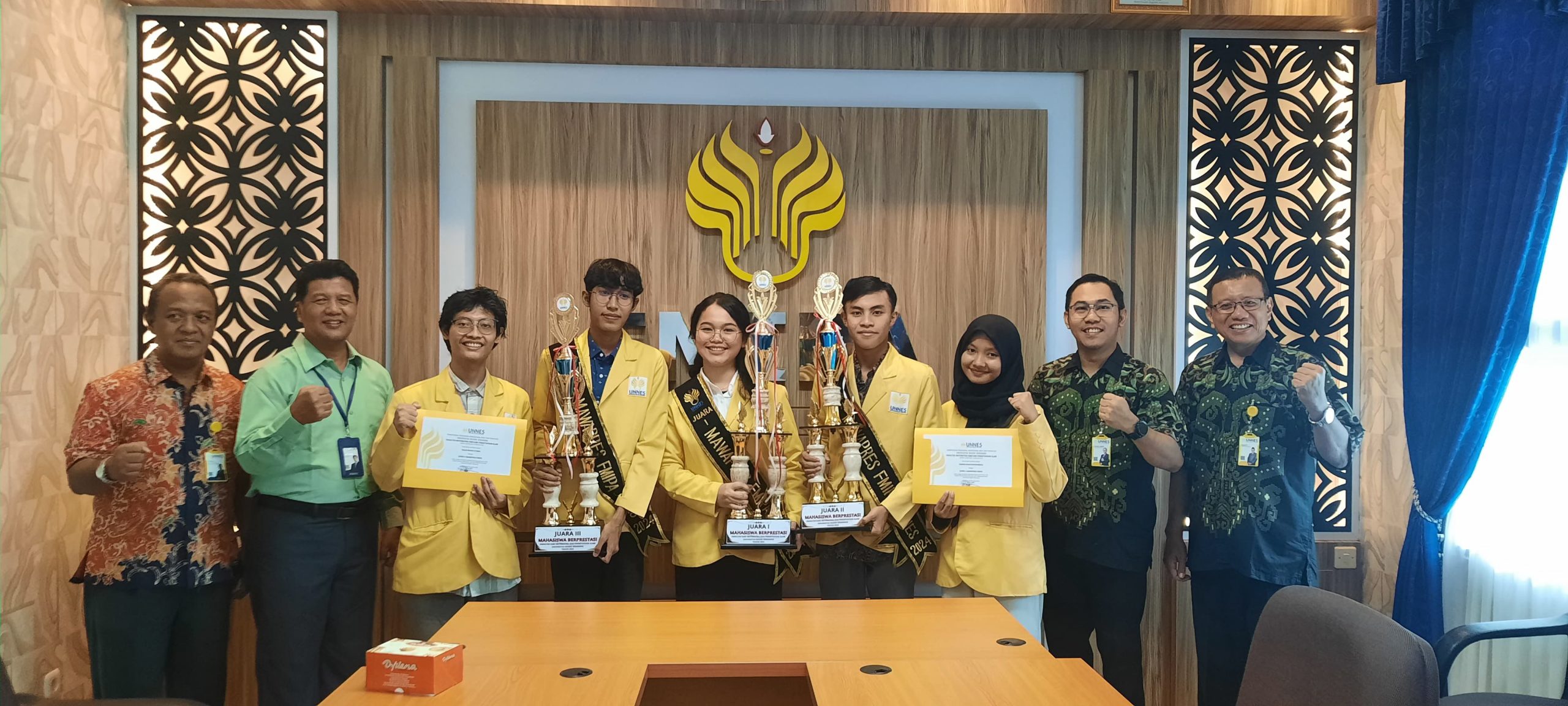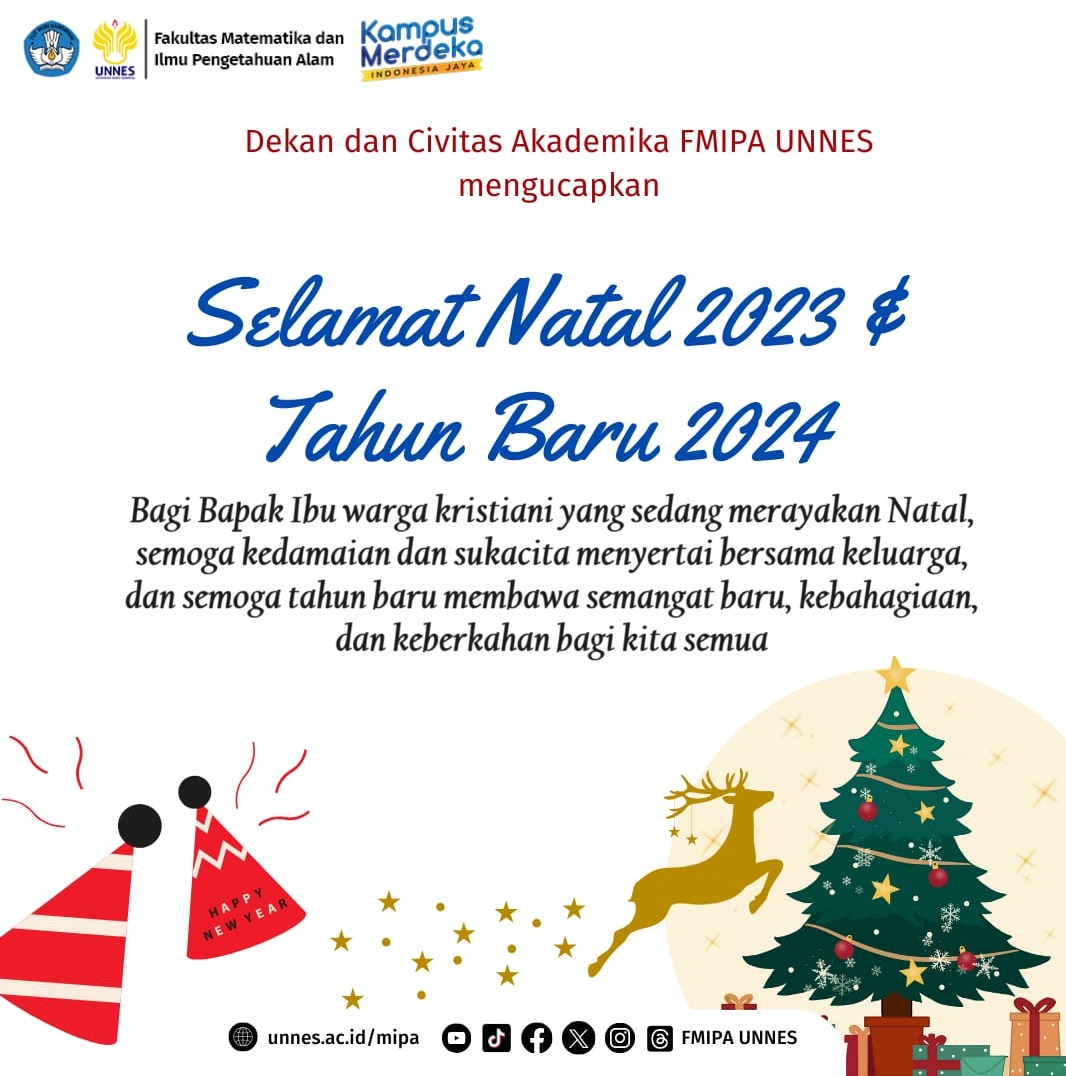Detalia Noriza Munahefi, S.Pd., M.Pd., is a young lecturer in the Mathematics Department of the Faculty of Mathematics and Natural Sciences at Semarang State University, teaching Linear Programming, Ethnomathematics, and Geometry for Mathematics Education. Currently, she is also active in the field of student affairs as a Supervisor for Student Scientific Works in the Mathematics Department. Her email address is [email protected].
Education is an important field in determining the quality of a nation. Creative thinking is one of the higher-order thinking skills that must be a part of the school curriculum. Creative thinking ability is not only found in specific fields such as the arts and sciences, but also in mathematics. Mathematics as one of the subjects taught in schools is expected to develop logical, analytical, systematic, critical, and creative thinking abilities. Shriki (2010) states that creative mathematical thinking skills at the school level do not expect extraordinary creative works, but can offer new insights into mathematical problems that are worthy for students.
Creative-based learning strategies in mathematics education have been widely established. Even the National Council of Teachers of Mathematics (NCTM) and the National Science Foundation collaborate to produce curricula to develop mathematical creative thinking skills. Based on its development, the problems faced in mathematics education are becoming increasingly complex and directing towards the educational goals in the era of technological advancement that demands students be creative. Therefore, learning activities are highly necessary to develop mathematical understanding and creative thinking skills, so that students can solve mathematical problems. In school teaching, there are rarely activities that require divergent thinking or creative thinking, so students are not stimulated to think, behave, and act creatively. Therefore, in the learning process, a way is needed to encourage students to understand problems, enhance students’ creative thinking skills in planning solutions, involve students actively in finding their own solutions to problems, and encourage student-centered learning with the teacher as a facilitator.
Project-based learning (PjBL) is one of the learning models that can foster creativity (Culclasure et al., 2019). Projects serve as a medium for project-based learning to achieve attitude, knowledge, and skill competencies. PjBL emphasizes student activities to produce products. Through this model, students will learn how to plan project arrangements, carry out activities according to the plan, present and report on the product of project implementation. Real products produced through PjBL are presented by students, thereby encouraging their independence, responsibility, and self-confidence. In addition, the process of product development in PjBL can also provide direct experiences and demand learning beyond just knowledge.
Projects are complex and challenging tasks that involve students in designing, problem-solving, decision-making, and investigation within a specified time period to produce products. The products produced in problem-based learning become more meaningful when related to something that students frequently encounter in their daily lives, such as culture, which is one of the habits that grow and is widely known in a particular society. Ethnomathematics is an approach that implements culture in mathematics learning. Through this learning, students can understand mathematics and not regard it as difficult because they perceive it as abstract. Batik can be used as an alternative to implementing ethnomathematics-based PjBL on the subject of plane figures. Students can implement ethnomathematics-based PjBL by designing a batik motif project using various plane figures. In addition, students are directed to utilize technology in designing the batik motif project by using specific applications such as Canva, Geogebra, or other applications. The use of applications in the project’s design is expected to enhance students’ understanding of technology applications and explore their ability to produce creative and innovative works.

Through the application of PjBL with an ethnomathematics approach in designing batik motifs, it is expected that students can achieve all aspects of mathematical creative thinking skills. Aspects of mathematical creative thinking skills consist of fluency, flexibility, originality, and elaboration. Fluency means that students can come up with several solutions to a problem, where in this learning, students can combine various shapes and sizes of two-dimensional objects in designing batik motifs. Flexibility means that students can solve problems with several appropriate strategies or approaches, where in this learning, it can be seen from students who can create batik designs with various applications. Originality means that students can provide unique solutions, where in this learning, it can be seen from the uniqueness of the batik designs that students make, which are different from other students’ designs but still contain mathematical elements. Elaboration means that students can solve problems in a detailed, coherent, and systematic way, where in this learning, it can be seen from students’ proficiency in explaining in detail the elements and characteristics of two-dimensional objects found in the batik designs they create.
References:
Culclasure, B. T., Longest, K. C., & Terry, T. M. (2019). Project-based learning (Pjbl) in three southeastern public schools: Academic, behavioral, and social-emotional outcomes. Interdisciplinary Journal of Problem-Based Learning, 13(2), 5.
Munahefi, D. N., Zahid, M. Z., Syaharani, E. A., & Fariz, R. (2021, June). Analysis of mathematical creative thinking test instruments on open-ended problems with ethnomatematic nuances. In Journal of Physics: Conference Series (Vol. 1918, No. 4, p. 042060). IOP Publishing.
Shriki, A. (2010). Working like real mathematicians: Developing prospective teachers’ awareness of mathematical creativity through generating new concepts. Educational Studies in Mathematics, 73(2), 159-179.





